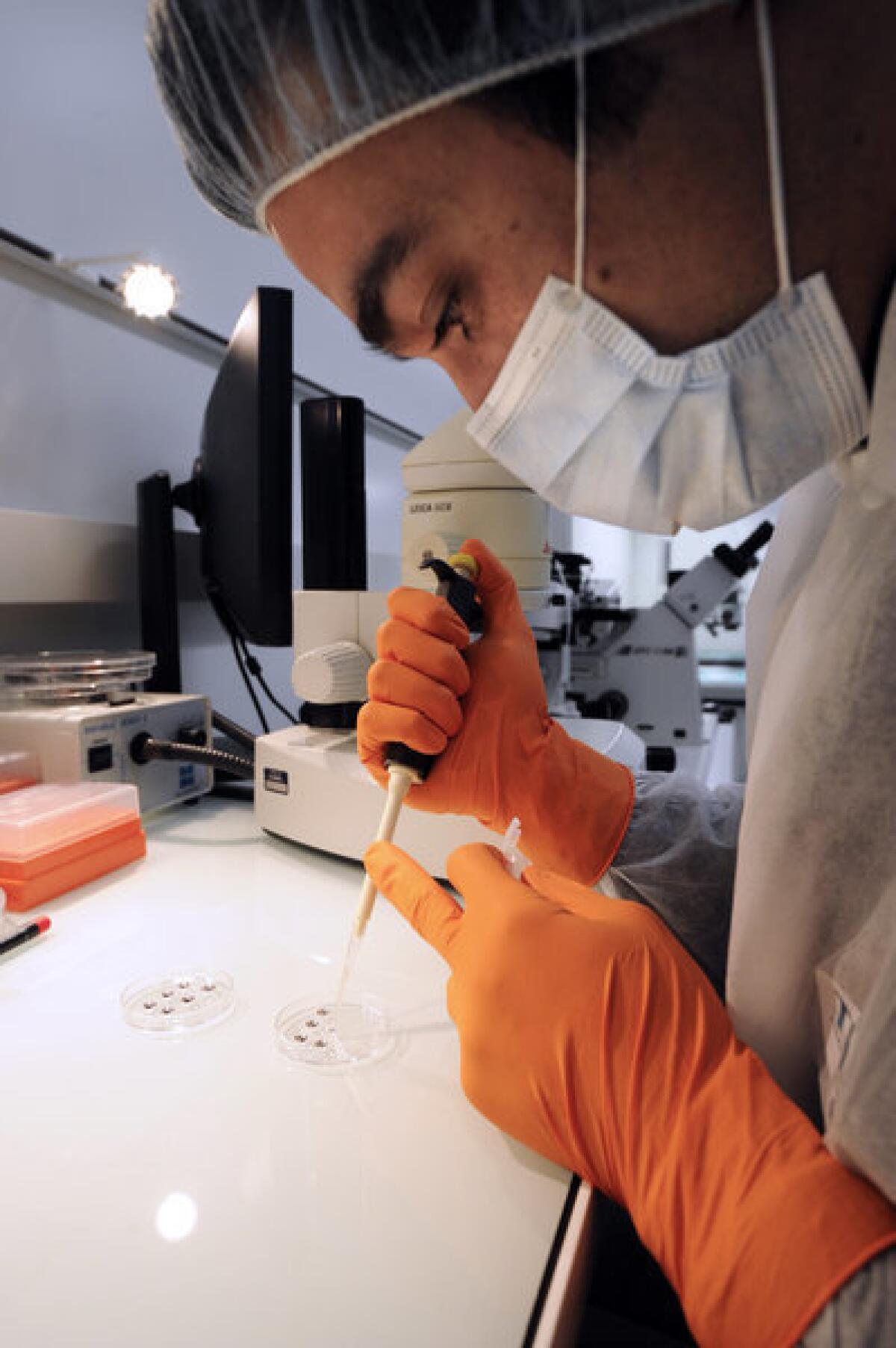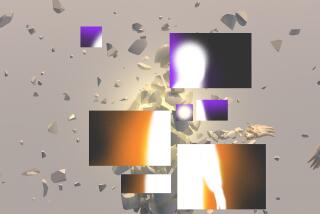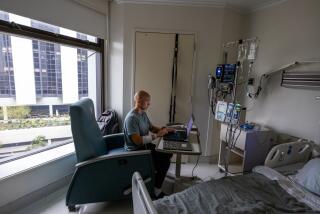Stem cells from donors help heart attacks heal

Stem cell therapy may help repair the hearts of patients who have suffered heart attacks, and, according to a new study published Monday in the Journal of the American Medical Assn., it may not matter whether those stem cells come from the patient or a donor.
For decades, common belief was that areas of the heart severely damaged by a heart attack could not be repaired. But the development of advanced cell therapies, in which stem cells or other cell types are injected into the damaged area, have provided new hope that interventions may be possible.
There are problems with such approaches, however. Chief among them is the need to acquire such cells from bone marrow, which requires invasive and painful procedures. What’s more, patients who have had heart attacks are generally in poorer health than others; even their stem cells can suffer as a result. One possible way around this problem is to use cells from another person — so-called “allogenic cells.”
But such donor cells have always been thought to carry risks of rejection, making them less safe than cells from the patient — known as “autologous cells.” In the new study, researchers from the University of Miami Miller School of Medicine studied 30 patients who had had heart attacks in the past and continued to have serious symptoms as a result, including difficulty moving about and the development of significant scar tissue on the heart. Half of the patients received cells from donors, while the other half received their own cells.
On the whole, the study found that the injection of cells from donors was just as safe as cells from the patient — a major result that, if repeated in other studies, may change the way heart attacks are treated by lowering the bar for cell-based therapies. In addition to being safe, the treatment appeared to work as well: Patients performed better on a test of walking, reported higher quality of life and had reduced scar tissue on their hearts after treatment.
So why was rejection not an issue? In an editorial published alongside the article, Drs. Eduardo Marbán and Konstantinos Malliaras of Cedars-Sinai Heart Institute in Los Angeles write that the mechanism responsible for the benefits may be different than researchers had believed.
While benefits from stem cell injections are generally attributed to the fact that each stem cell is able to proliferate into many cells — a feature that may help with tissue repair — Marbán and Malliaras argue that it may instead be that the cells cause a series of changes among the cells already present in the damaged heart, helping it repair itself.
If this is the case, they write, “Rejection of allogeneic cells may not matter if the cells survive long enough.”
Return to the Science Now blog.






